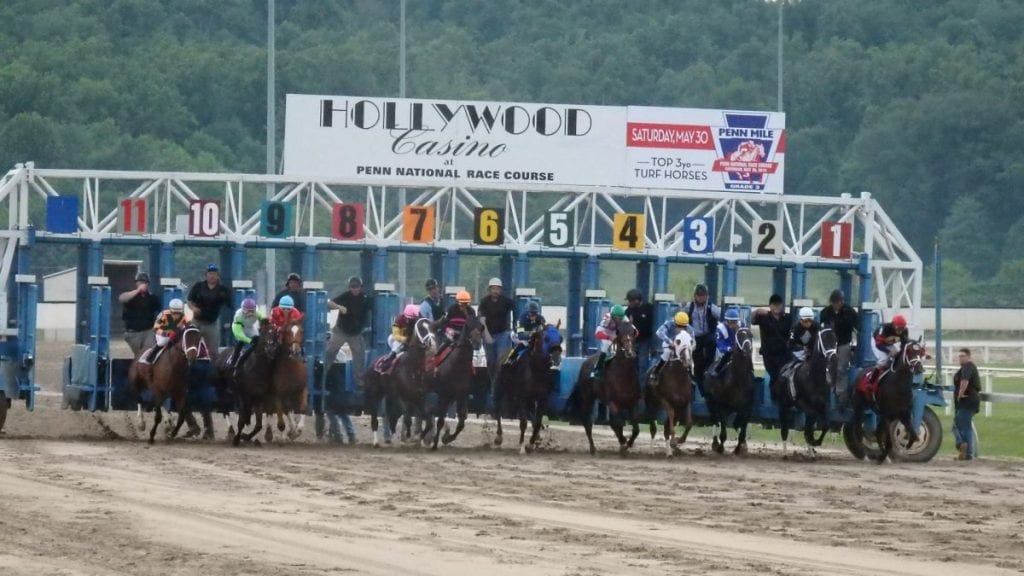PENN NATIONAL, PRESQUE ISLE TO ADD DAYS

by Byron King, courtesy of the Blood-Horse
The Pennsylvania State Horse Racing Commission approved an extension to the Thoroughbred race meets at Presque Isle Downs and Penn National Race Course during its meeting Sept. 28.
Eight cards have been added to the Presque Isle meet, which began later than usual this year due to the COVID-19 pandemic. The commission also approved shifting evening racing on Sundays to afternoons on Tuesdays there during four weeks in October.
- It’s Hammertime returns with sharp score
 Off since November, It’s Hammertime returned ready to roll, taking a stakes-quality allowance in a sharp score.
Off since November, It’s Hammertime returned ready to roll, taking a stakes-quality allowance in a sharp score.
Penn National picked up six programs, two in October and four in December. The track, which runs the majority of the year, is in the midst of a scheduled racing break for track maintenance.
Joe Wilson, chief operating officer for Parx Racing, told commissions that track handled $13.8 million Sept. 25 when it staged the Pennsylvania Derby (G1) and a crowd of more than 10,000 attended. The day’s betting represented a 30% rise from its prior high in 2014 when California Chrome ran at Parx, he added.
Tom Chuckas, the director of the Thoroughbred Horse Racing Bureau at the Pennsylvania Department of Agriculture, noted that all graded stakes horses that raced at Parx were subject to out-of-competition testing both on-site and at their regular bases. Results are pending, he said.
“We conducted a couple gate searches, 33 vehicles searched, and basically one electronic device found on a stable employee. He was summarily suspended pending a future hearing,” Chuckas said. “Besides that incident, there was nothing else. So it appears that a collaborative effort over the past few months between Parx and the commission has proved fruitful.”
The commission hopes to have a report from a working group that is examining horse fatalities by October or November. The Philadelphia Inquirer reported Sept. 1 that 31 horses died at Parx during the first six months of the year, citing Pennsylvania Department of Agriculture data.
Commissioner Thomas Jay Ellis bristled at what he said was an inaccurate line of text added from the office of Pennsylvania Governor Tom Wolf to a racing commission press release after their last meeting. He said that changed the meaning of the release and “became the heart” of the Philadelphia Inquirer story, which “negated the work we’ve been doing and are doing to prevent fatalities, both on the track and in the barns.”
At a later point of the meeting, the commission came under critique during the public comment period for not releasing necropsy data under an open records request.
Earlier, Dr. Mary Robinson, director of the Penn Vet Equine Pharmacology Laboratory, noted to commissioners five manuscripts published over the fiscal year meant to improve horse safety and racing integrity. Among the subjects were methods of heart-rate variability in racehorses to try to identify horses at risk due to cardiovascular collapse, and the use of retrospective data collection to identify drug substances unknown at the time of screening.
During its industry report, the commission was told that purse-subsidizing slot revenues have stabilized, which allowed two stakes races to be run at Penn National and purses to rise for two juvenile stakes races coming up in November and December.
LATEST NEWS













